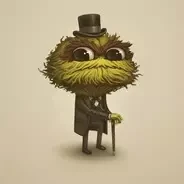Give me your wordplay and obscure culture references, I love them all.
Two divers meet. One say “Hi” the other says “where?!”
Two hunters meet. Both of them are dead.
Which language of origin?
German:
-
Joke: “Hi” is spoke like “Hai” German for shark. So when two divers meet and one says hi, the other thinks, where is the shark??
-
Joke: “to meet” is translated in german as treffen. Treffen can also the mean to hit. So the joke goes from a freindly meet up between hunters to both of them hitting eachother while on the hunt and dying.
It works in Norwegian as well, both of them.
But for the shark one in Norwegian there’s this one:
What did the sand say to the shark? Hihi
What did the shark say to the sand? Hi sand
We also say hai in Finnish for shark
-
Hai (similar pronunciation as hi) = shark
German.
hai, lika i svenska?
[off topic?]
Yiddish. Does not translate to Christian.
Old man goes to the same lunch counter every day and orders the exact same meal every time. Tuna fish salad on rye toast and tomato soup.
One day he walks in and orders his meal. The waiter brings it.
“Waiter, I want you to try this soup.”
“I’m sorry sir, I’ll get you a different bowl.”
“No, I want you to try this soup!”
“I’ll get the manager.”
“No, I want you to try this soup!”
This goes on for five minutes and finally the waiter gives up.
“Okay, I’ll try the soup. Where’s the spoon?”
“Aha!”
This works better when spoken with the appropriate inflections.
Nu?
I mean, Christians eat soup, too.
It just comes from cans instead of waiters.
Spanish:
–Señor, mi mamá quiere saber qué vende.
–Dile a tu mamá que ceviche.
English:
–Mister, my mom wants to know what are you selling.
–Tell to your mom that ceviche.
Ceviche is, well, ceviche. In north west of México, we often say “vichi” to say “nude”. “vicharse” would be “get naked”, so “Dile a tu mamá que ceviche” can be a pun for “dile a tu mamá que se viche” (Tell to your mom that get naked)
Que le dijo un pez a otro pez?
Nada!What did one fish say to the other? Nothing(/Swim)!
Un león comió jabón. Ahora, es puma/espuma.
Una estrella estrellada
I get it. The spanish wordt for swimming is “nadar”, which sounds almost the same. Seems like DuoLingo isn’t completely useless after all.
Not a spanish speaker but isn’t ‘nada’ also swim, as in a command to?
Imperative conjugation of nadar is nada
An Ulster Scots one:
“Ballymena mawn went uptae glens in Canadae yin dae”
“An he saa tae yer man in the pub: What’s that thaer on tha wall?”
"An the publickan saa “Why, That’s a moose”
"Ballymena man saa: “Aye? That a moose? Sure, if thats a moose then yer cats must be wile big!” "
As a Canadian in Scotland, this is the number one joke I’m told by Scots. Closely followed by the statement “I’ve a (cousin/sister/brother/uncle/auntie etc) in Canada.” I swear, it’s probably 1 in 3 Scots with family in Canada.
“Was ist der Unterschied zwischen Schach und Billard?” - “Beim Schach hat man den Kö nich.”
“What’s the difference between chess and billiards?” - Answer is a pun, can mean both “In chess, you have the king.” and “In chess, you don’t have the cue.” Doesn’t translate at all.
Spanish wordplay: ¿Por qué está feliz la escoba? Porque siempre barriendo.
Translation: Why is the broom happy? Because it’s always sweeping (barriendo = sweeping, sounds like va riendo = goes around laughing)
El pan está blando ¿Y qué dice?
Oye, esa oración no tiene sen—ooooooh. 🙈
No matter how sloshed you may be, Goethe was a poet.
Tap for spoiler
“Dicht” is a word for “drunk/pissed/sloshed”. “Dichter” is both “poet” and “more sloshed”.
Oh God there are so many of these.
No matter how young your friends are, Jesus’s friends were apostles.
No matter how well you drive, trains drive freight.
No matter how empty you feel, remember, there others who are teachers (this one works out unexpectedly well)
No matter how well you drive, trains drive freight.
I didn’t know that one and it makes me so happyyy yaaay :D
「野菜を食べやさい!」
I think a close-enough approximation (which isn’t close at all) would be “eat your veggies, peas.”
In the garden, there are two chickens.
庭には、鶏が二羽いる。
I almost forgot about that one!
English is squeezing the last scraps of Japanese out of me. :(
Is -やさい just a cheeky pun off of -なさい?
>:]
5回も誤解した
life is like a cucumber, sometime in your hand sometime in your ass. Arabic/Sudanese dialect
el eisha zey el ajoura, mara fi eedak, mara fi teezahk
……
what am i doing with my life 🙈
Får får inte får. Får får lamm.
sheeps don’t get sheeps. Sheeps get lambs.
Får = sheep/to get
var tog vägen vägen? Ute på en åker och åker
where did the road go? Out in a field and driving
“Tog vägen” = literally “took the road”, meaning “where did it go”, sort of. And åker = driving and a farm field.
I got a t-shirt from the Swedish Society for People with Anxiety. It came with a print on the chest.
“print on the chest” would be “tryck för/på/över bröstet” having the double meaning “preassure over the chest”.
Then there are endless of jokes from Gothenburg which all do not translate.
Who is faster, Eminem or Taylor Swift? Eminem, he is a rapper
“rapper” in swedish is “rappare”, meaning also “faster”.
In stockholm a snake escaped the zoo and has not been found. The zoo is missing him a lot
The last bit in swedish would be “saknaden är enorm”, “saknad” being the emotion of missing someone, “enorm” being large/a lot/great. But also enorm=en-orm=a-snake.
After the workers are finished, Mandy from Saxony comes home to see the result of the house renovation.
The entire floor is covered in white bread.
She shouts “What’s this? I wanted parquet flooring, not baguette flooring!”(Parquet and Baguette are pronounced exactly the same in Saxonian dialect)
I thought I might make a joke about the Deutsche Bahn but I don’t think it would go over well.
Tap for spoiler
Edit: I should add explanations.
“To go over well” in German is “(gut) ankommen”. “Ankommen” also means “to arrive” - which Deutsche Bahn trains are notoriously bad at doing in a timely manner.
Didn’t the German trains have such incredible reliability that they issued apology notes for workers when they arrived late, because bosses wouldn’t believe that’s why someone was tardy?
That’s Japan, unfortunately.
It also is Germany (and France, Malaysia, and Singapore). At least according to Wikipedia.
It’s possible Wikipedia is relying on outdated info though.
Not because our trains are usually so very reliable though. On the contrary, if DB has actually managed to implement a mechanism like that (I personally haven’t heard of it), that’s because they get so many complaints and people kept demanding some kind of documentation to show their higher-ups to explain why they’re always late.
My husband just reminded me what this actually is. It’s not for people being late for work, it’s for people demanding their money back from DB. And it’s only issued after the train was late for a certain time, an hour at least, iirc - because if they did this for shorter delays, they wouldn’t get around to doing anything but issue delay certificates. (Note that you only get the entire cost back when the train was delayed significantly, for several hours, otherwise it’s a partial refund at best.)
There is a traditional saying in Germx’an: punctual as the railway. It’s meaning has shifted quite a lot after Deutsche Bahn was transformed from a public service to a private company. So yes, the reliability of DB is indeed incredible. They’d have to issue notes when they’re on time nowadays, though.
They used to be fairly reliable. Then privatization happened…
And in true German fashion, they privatized it only half-way, combining the disadvantages of a privately run enterprise with the drawbacks of a state-owned company.
Who’s the stinkiest Norse god? Gar-loki
Works better in Dutch, I swear
3 students share an apartment and 2 of them study a lot but the third spends most his nights partying. The 2 studious housemates decide to pull a prank on him, and one night when he comes home they are waiting for him next to the bedroom door wearing white sheets. One of the friends says ‘welcome friend, I am Peter!’. The other says ‘welcome friend, I am Paul’. The drunk house mate looks at them and says ‘Colleagues! would you mind stepping aside? I am Lazarus!’
yeah, that doesn’t translate… in Dutch, the names refer to St peter and St Paul and both end in -us as well: Petrus and Paulus. Also, ‘being Lazarus’ means being very drunk.
Here’s one which only works if you know BOTH Portuguese and English:
“In Portugal it’s very common for old ladies to go to a coffee place and ask for a big cock”
(Explanation: the Portuguese word for milk with coffee - “galão” - also means “big rooster”. Those are the only two meanings it has in that language. However when you translate it to English you can use a certain synonym for “rooster” which can be read as having another, very different, meaning)
A joke in Spanish: ¿Como se dice “autobus” en alemán? “subanstrujenbajen”
Explanation: The question asks how to say “bus” in German. The answer is a form of the words “get on, squeeze, get off” made to look/sound like faux German.
I didn’t know alemán was another way to say “German.” I play early music, and it’s also a type of song known as a “German dance,” so that makes a lot of sense.
The French call Germany “Allemande” as well.











